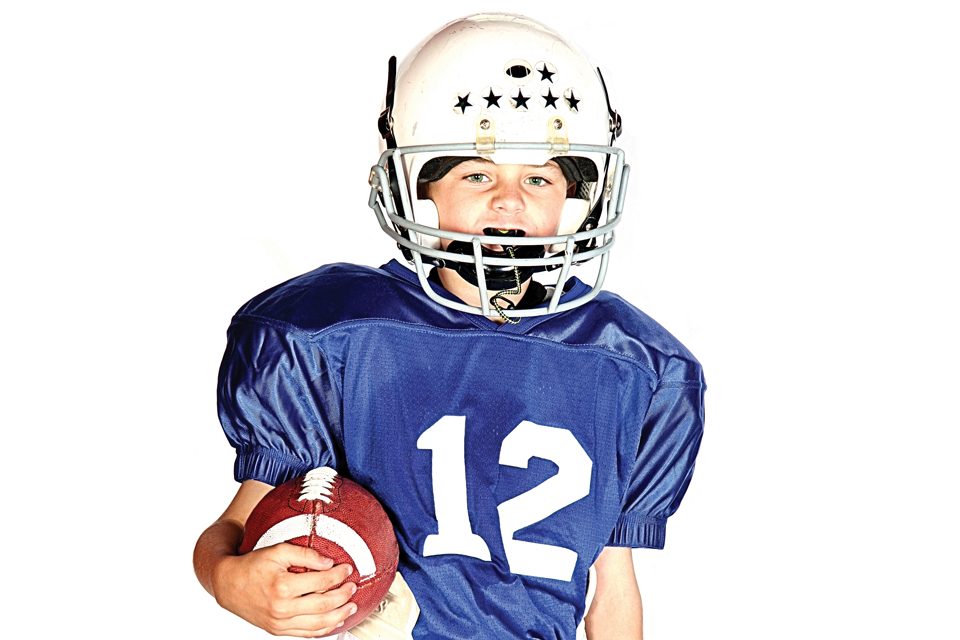Parenting Your Athlete

Your child is destined to be the next Tom Brady, Derek Jeter, Maria Sharapova, Michael Jordan, Tiger Woods, Mary Lou Retton, or Michael Phelps. He’ll be world famous, make gazillions of dollars, buy you a new house, and take care of you in the style you want to become accustomed to. Then again—maybe not. Very few do.
Of course, there’s more to sports than the seldom-traveled road to fame and riches. Sports can help to keep your child fit, healthy, looking good, learning and developing life skills, and having fun. But, whether they will is considerably up to you and to your child. Here are some of the things you can do to help your kiddo thrive throughout his (hopefully) lifelong journey through the world of competitive sports.
Provide your child with the best opportunity available
Do your research. Make sure your child will be safe and not abused in any way. Find a program that will do the best job of teaching the skills. Put him in a group whose mission supports your values, purpose, and goals for your child. Find a program for him that is filled with athletes who are busy pursuing excellence.
Support your child’s participation
Most sports require a strong commitment from parents: financial, transportational, nutritional, and emotional. You need to help him get to practices and competitions; feed him well, often, and at odd times; encourage him; cheer him on; listen to his disappointments; boost his excitement; comfort him, and help him stay on track.
Let your child own his sport; it’s his, not yours
Do you want your child to get and stay fit and healthy, learn life skills, have fun, and derive all of the value from his competitive sport experience? Or, are you looking to recapture lost experiences, make up for your mistakes, or bask in the glory of your child’s successes? It’s his sport, his experience, his time. They are his successes, his failures, his challenges, his mistakes. You are his support group, his fan club, his financier, and his parent. His performance is his. It’s not yours. It’s his sport, not yours. Let him own it.
Criticize the act, not the child
What he did is what he did. It’s not who he is. He’s not a good person when he performs well. He’s not worthless when he plays poorly. Better yet, stay out of it. He knows when he did well. He knows when he messes up. And, his coach will let him know.
Let the coach coach
Unless you are coaching your child yourself, you aren’t the coach. Let the coach coach. Sure you want to help. But if you did a good job of helping to find a good opportunity, most times it’s best for you to sit back and let the coach coach. The coach is not your child’s parent. He’s not your child’s friend. He’s an expert resource person, from whom your child has an opportunity to learn. Sure you might approach things differently, but there is more than one way to climb a tree. And one of the best ways to excel in a team environment is to buy into the program. Don’t confuse your child. If your child needed surgery, you wouldn’t go find the best surgeon you could, then do the surgery yourself. You pay for the coach to coach. Let him do the job.
Tell your child to “have fun”
When you send your child off for practice, tell him to “have fun.” When he returns from practice, ask him, “Did you have fun?” If he says yes without elaborating, ask him what was fun about it. If he says, “no,” ask him why he didn’t make it fun. Do the same thing when you send your child off to compete. If you do nothing more than that, you’re probably doing a great job of parenting your athlete.
Dr. Keith Bell is the author of “The PARENT’S GUIDE to the Proper Psychological Care & Feeding of the Competitive Swimmer” and nine other books on Sports Psychology and Human Performance Psychology. He is the parent of two girls and two boys, all of whom played sports.






